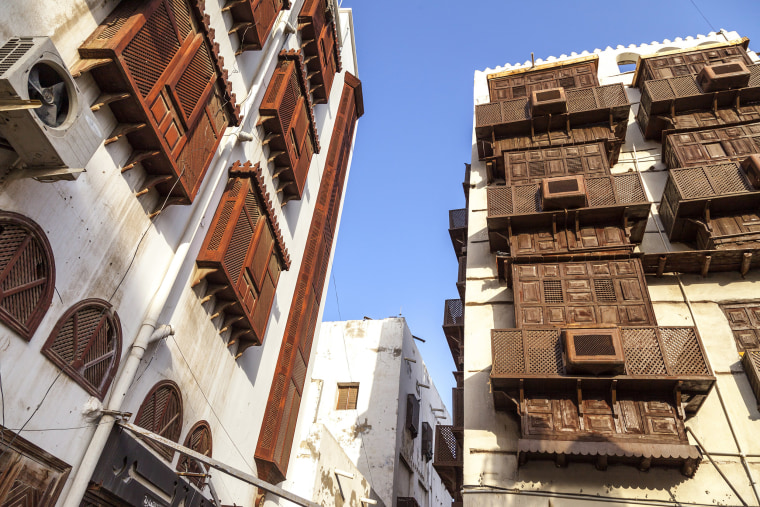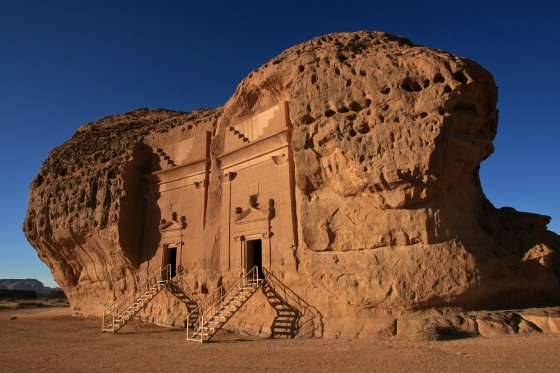LONDON — Saudi Arabia announced details of a tourist visa scheme Saturday as part of a major drive to attract foreign visitors as it presses on with efforts to transform its economy and the way the world sees the insular Gulf monarchy.
The one-year, multiple-entry visa scheme allows for stays of up to 90 days at a time, and marks the first time the country is allowing foreigners to visit solely for the purpose of tourism.
Currently only citizens of surrounding states, those on Islamic pilgrimages or business trips can apply for visas to the absolute monarchy.
Some 18 million Muslims a year visit for religious purposes, chiefly the Hajj and the Umrah pilgrimages, and Saudi Arabia wants to increase this figure to 30 million.
"It will change the perception, they have to come and see us, they have to come and see the Saudis and live in Saudi Arabia and experience Saudi Arabia," Ahmad al-Khateeb, chairman of the Saudi Commission for Tourism and National Heritage, told CNBC Friday.
"It's a very huge, big country, with great people."

The move, part of sweeping plans to wean the Middle East’s largest economy off oil and transform one of the world’s most conservative societies, was launched by its de facto ruler, Crown Prince Mohammed bin Salman.
The kingdom wants tourism to represent 10 percent of the economy by 2030, from its current 3 percent, according to the plans, which were launched in 2016.
The Saudi government hopes that inviting visitors to attractions such as five UNESCO World Heritage sites will greatly increase the number of non-Muslim tourists too, al-Khateeb said.
The government is also looking to emulate the success of the neighboring United Arab Emirates, which has transformed Dubai into a major destination for Western holidaymakers.
Dubai was the world's No. 1 city in terms of money spent by overnight visitors last year, more than $30 billion in total, according to research by Mastercard.
The visa information website indicated an easing of strict dress codes for visiting women, requiring shoulders and knees to be covered but not demanding they wear the full-body abaya which is mandatory for Saudi women.
A new promotional video highlights the sights the country has to offer, as its voiceover says: "Get your visa now."
The move comes at a sensitive time for the country. Earlier this month, an oil processing plant and an oilfield in the country were hit by missile strikes, an attack the United States blamed on Iran. Yemeni Houthi rebels, backed by Saudi Arabia's arch-rival Iran, claimed responsibility for the attack. Iran has denied involvement.
Next week also marks one year since the murder of Saudi journalist Jamal Khashoggi. In June, a United Nations investigator's report found there was "credible evidence" that high-level Saudi officials could be liable for his death. The CIA and other foreign intelligence agencies have also concluded that the crown prince ordered the killing of Khashoggi.
Al-Khateeb said the Khashoggi case was "being dealt with by the authorities," adding that inward investment had not declined as a result of the scandal.
Jim O'Brien, owner of U.K. travel company Native Eye, which already organizes nonreligious tours of Saudi Arabia using business visas, told NBC News: "The tourist visa not being available is a massive discouragement because you can only travel there on a business visa, which isn't viable for most people.
"It's never going to have a massive appeal, but it will appeal to those interested in exploring traditional cultures and somewhere that's very different. Some are put off by news reports, but some people think that makes it an exciting place."
He added, however, that Saudi Arabia has previously hinted at allowing tourist visas before failing to introduce them.
American investors and businesses have already moved to benefit from Saudi Arabia's tourism drive. Six Flags is building a theme park at Qiddiya, a leisure and entertainment destination 24 miles from Riyadh, that was announced in 2017.
A huge luxury tourism development covering 17,000 square miles is being built along country's Red Sea coast.

